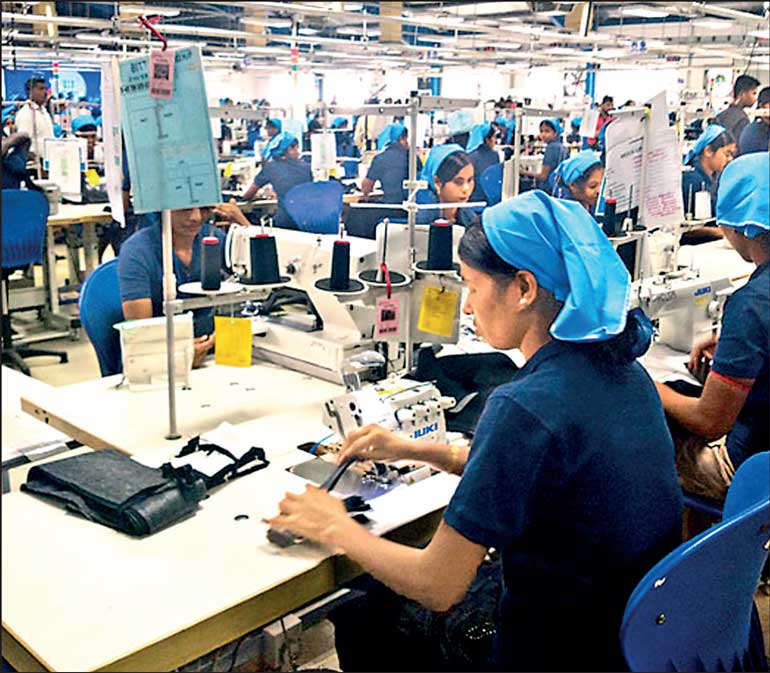Friday Feb 20, 2026
Friday Feb 20, 2026
Friday, 17 March 2023 00:45 - - {{hitsCtrl.values.hits}}

How do we make Sri Lanka the best destination in South Asia for business and investment? Skilled workforce is key
 Sri Lanka requires rethinking and re-engineering for structural transformation and economic recovery. Today many of our key sectors in the economy are critically starved of skilled workers. This is a result of the poor orientation that is taking place at school level. As a result young people are getting pushed into industries that are far less productive and in addition our education system is mostly supply driven.
Sri Lanka requires rethinking and re-engineering for structural transformation and economic recovery. Today many of our key sectors in the economy are critically starved of skilled workers. This is a result of the poor orientation that is taking place at school level. As a result young people are getting pushed into industries that are far less productive and in addition our education system is mostly supply driven.
The situation for knowledge workers is no different, with migration driving down supply. For example Sri Lankan universities, due to limited intake capacity, by default only open their doors to the top 5% that sit for the Advanced Level exams. The majority joins the workforce with limited training or no training at all. Only around 10% pursue their high-education in foreign universities or their satellite branches in Sri Lanka or enrol into a professional qualification or a diploma course in accounting, finance, management, HR and marketing.
Therefore as a country we need a new strategy to successfully move our young people from education to employment and we need to scale up our interventions for maximum impact because there are many different views among the stakeholders on how our young people should be made ready to succeed at entry level positions. Therefore the reforms must find a way to motivate our youth to move to productive industries and from becoming mere certificate collectors and refocus them to acquire skills and competencies that are needed to deliver on the job.
A good starting point would be the recruitment into the Public Service and SOEs – especially of knowledge workers and the end to employment-for-life structures in this segment. At the same time it is important for professionals to focus on their continuous professional development because the life span of skills is now very short. On the other hand the private sector must also do more to support the growth and development of young employees to help them to be as productive and successful as possible in their current and future roles. There is ample research to show that the return on the training investment is higher in industries that engage well-educated workers and also in environments where there is rapid technological change. We need to promote public-private partnership for skills accumulation. Therefore businesses must also stand ready to take advantage of the limited support the Government can provide.
Export growth
In successful export economies the training provided by VTIs jointly with the private sector to upgrade the skills of their workforce has been crucial, since high-level skills are essential for manufacturing-related activities. Therefore vocational training is widely recognised as very important, such training is rarely cost-efficient when provided by the state systems. If the skills drive can be tied together with export policies it will help to share the benefits more widely, for example by planning measures that help workers get the skills needed to compete for new formal-sector jobs.
Boosting exports in labour-intensive industries, which is a comparative advantage for South Asia, could also significantly lower informal-sector employment, particularly for rural and less-educated people. Also steps to extend labour market gains more widely by investing in infrastructure, removing trade barriers, and increasing the ability of workers to move to areas and into occupations where new jobs are being created will be useful.
Post debt restructuring
Today the country’s university education is only limited to the brightest students in the country; the universities need to work very closely with industry to improve syllabi and the facilities to ensure that the country’s brightest students are instilled with the skills and knowledge the country needs so that they can make a meaningful contribution to the country. In addition, we also need to make education more affordable because cost still remains the number one barrier among the youth for not continuing their education. Therefore we need to devise numerous ways to provide additional funds for economically vulnerable people through scholarships and subsidies. The education system must ensure all girls and boys who are supposed to be in secondary education, develop and get the skills they need to find productive work and actively engage in economic progress. Doing so will ensure that Sri Lankan youth become successful tomorrow and ensure a sustainable recovery post-IMF.
(Reference: NHRDC.lk policy options.)